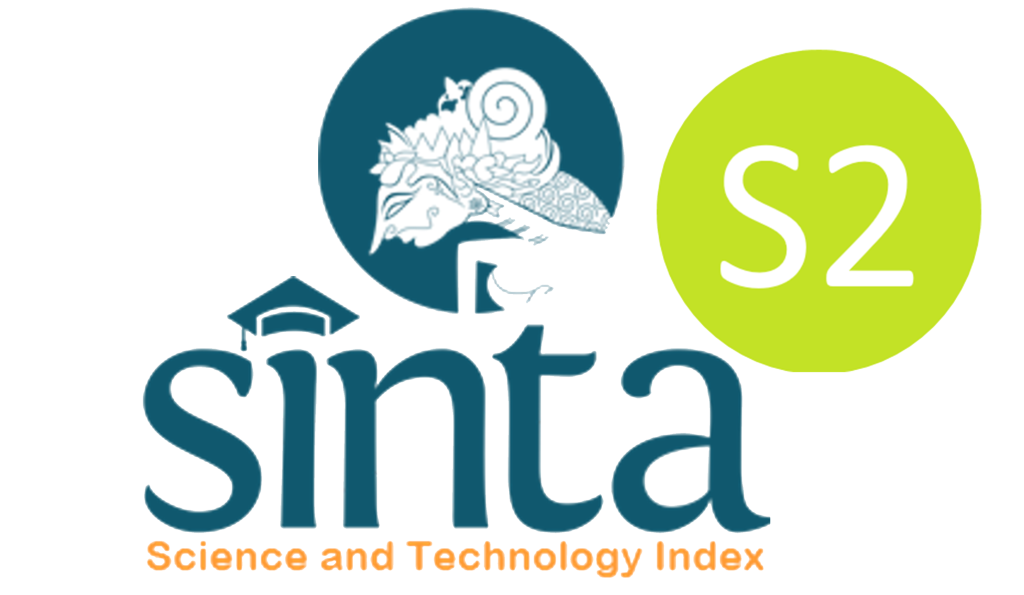THE EFFECTIVENESS OF GROUP GUIDANCE USING THE COGNITIVE BEHAVIOR THERAPY APPROACH WITH COGNITIVE RESTRUCTURING TECHNIQUES TO INCREASE STUDENT SELF-ESTEEM
DOI:
10.54443/ijerlas.v3i6.1138Published:
2023-08-15Downloads
Abstract
Success in learning will generate positive self-esteem. Competence and achievement are integral elements of self-esteem and related to self-esteem assessment, at SMAN 4 Sungai Penuh it is still found students who have low academic self-esteem such as being ashamed of their physical condition which is not ideal so they do not dare to present themselves , the lack of student effort in practicing self-ability. Conditions like this are a concern, so efforts are needed to increase student self-esteem by providing group guidance services with cognitive restructuring techniques. Therefore, this study aims to (1) analyze the differences in self-esteem of students in the experimental group before and after attending group guidance services using the CBT approach with cognitive restructuring techniques, (2) analyzing the differences in self-esteem of students in the control group before and after attending group guidance services commonly used by counseling teachers at schools (3) analyzing differences in self-esteem of students in the experimental group who attended group counseling services using the CBT approach with cognitive restructuring techniques with groups controls who attended group guidance services that are usually used by guidance counselors at school. The research method used is a quantitative approach. This type of research is a quasi experiment. The sample of this research is 10 students for the experimental group and 10 students for the control group. Sampling using the Slovin formula and sampling with purposive sampling technique. The data collection technique uses a self-esteem scale, Data were analyzed using the Wilcoxon signed ranks test and the Kolmogorov-Smirnov two independent samples using SPSS version 25.00. The results showed that (1) there was a significant difference in the self-esteem of the experimental group students before and after attending group guidance services using the CBT approach with cognitive restructuring techniques, (2) there was a significant difference in the self-esteem of the control group students before and after attending the service group counseling which is usually used by counseling teachers at school, and (3) there are differences in the self-esteem of students in the experimental group who take part in group guidance services using the CBT approach with cognitive restructuring techniques and the control group who take part in group counseling services which are usually used by counseling teachers in schools, This can be seen in the posttest average score of the experimental group which was higher than the control group's posttest average score. So, group counseling cognitive behavior therapy with cognitive restructuring techniques is effective for increasing student self-esteem.Keywords:
Group Guidance, Cognitive Behavior Therapy, Cognitive Restructuring, Self-EsteemReferences
A'yuni, Q., & Setiawati, D. (2017). Application of Group Counseling with Low Expressive Writing Techniques to Improve Self Esteem in Grade VII Students at SMP Negeri 34 Surabaya. Journal of BK UNESA, 7(1), 1–13.
Aditomo, A., & Retnowati, S. (2004). Perfectionism, Self-Esteem, and Tendency to Depression in Late Adolescence. Journal of Psychology, 1(1), 1–14.
Armila. (2021). The Effectiveness of Group Guidance Services in Improving Self Esteem. Journal of Islamic Extension Guidance, 3(2), 243–262.
Azmi, FM, Khan, HN, Azmi, AM, Yaswi, A., & Jakovljevic, M. (2022). Prevalence of COVID-19 Pandemic, Self-Esteem and Its Effect on Depression Among University Students in Saudi Arabia. Frontiers in Public Health, 10, 1–8. https://doi.org/10.3389/fpubh.2022.836688.
Bakhrudin, HA (2017). Cognitive Behavior Group Counseling Model for Handling Vocational High School Students' Self-esteem. Journal of Applied Guidance And Counseling, 1(2), 86–102. https://doi.org/10.30598/jbkt.v1i2.144.
Banstola, RS, Ogino, T., & Inoue, S. (2020). Self-esteem, perceived social support, social capital, and risk-behavior among urban high school adolescents in Nepal. SSM - Population Health, 11(December 2019), 100570. https://doi.org/10.1016/j.ssmph.2020.100570.
Beck, JS (2011). Cognitive behavior therapy basic and beyond. New York: The Guilford Press.
Bos, AER, Muris, P., Mulkens, S., & Schaalma, HP. (2006). Changing self-esteem in Children ad adolescents: A Roadmap for future Interventions. Netherlands Journal of Psychology 62, 26-33.
Mruk, CJ (2013). Self-Esteem and Positive Psychology Research, Theory, and Practice. In The Routledge Handbook of the Psychology of Language Learning and Teaching (Fourth). New York. https://doi.org/10.1177/0959354308093397.
Coralia, F., Qodariah, S., & Yanuvianti, M. (2017). Personality Types and Self-Esteem in Social Media Addicts. SCHEMA (Journal of Psychological Research, 140–149.
Corey, G. (2010). Theory & Practice of Group Counseling. Eighth Edication: Us: Brooks/Cole. https://doi.org/10.1093/oseo/instance.00096853.
Corey, G. (2012). Theory & Practice of Group Counseling Eighth Edition. In S. Dobin & A. Petty (Eds.), Brooks/Cole, Cengage Learning (Eight). Belmont: Brooks/Cole, Cengage Learning. https://doi.org/10.1093/oseo/instance.00096853.
Corey, G. (2013). Theory and Practice of Counseling and Psychotherapy, Ninth Edition. In S. Dobrin (Ed.), Brooks/Cole, Cengage Learning (Ninth). Belmont, USA. https://doi.org/10.2307/583738.
Cormier, Sherry., Nurius, Paula. S., & Osborn, CJ (2017). Interviewing and Change Strategies for Helpers 8e. California: Brooks/Cole Publishing.
Crocker, J., & Major, B. (2012). Social Stigma and Self-Esteem: The Self-Protective Properties of Stigma. Psychological Review.
Damayanti, R. &, & Nurjannah, P. . A. (2016). The Effect of Cognitive Behavioral Counseling with Cognitive Restructuring Techniques on the Self-Esteem of Grade VIII Students at MTS N 2 Bandar Lampung. Counseling: Journal of Guidance and Counseling (E-Journal), 3(2), 221–234.
Censuswide research firm data. 2021. https://fidence-statistik-uk-2021.
Faiza, A. (2022). Emotional Intelligence And Self-Esteem: A Brief Inquiry. (February). https://doi.org/10.17051/ilkonline.2022.01.05.
Fauziah, F., Neviyarni, N., Karneli, Y., & Netrawati, N. (2020). Modification of Group Counseling for Students Using a Rational Emotive Behavior Therapy (REBT) Approach in the Middle of the Covid-19 Pandemic. Consilium: Periodic Counseling and Religious Studies Studies, 7(2), 52. https://doi.org/10.37064/consilium.v7i2.7745.
Firman., Karneli, Y., Fidiawati, L., Izzati, R., & Dalimunte, H. (2020). Drug Abuse Prevention Intervention Through Group Guidance (First). Malang: CV IRDH.
Guindon, MH (2009). Self-esteem across the lifespan: Issues and interventions. In Self-Esteem Across the Lifespan: Issues and Interventions. New York: Taylor & Francis Group. https://doi.org/10.4324/9780203884324.
Irianto. (2016). STATISTICS: Basic Concepts, Applications, and Development. Jakarta: Prenada Media Group.
Even so. (2006). Experimental Psychology Second Edition. Malang: UMM Pres.
Moloud, R., Saeed, Y., Mahmonir, H., & Rasool, GA (2022). Cognitive-behavioral group therapy in major depressive disorder with a focus on self-esteem and optimism: an interventional study. BMC Psychiatry, 22(1), 1–11. https://doi.org/10.1186/s12888-022-03918-y.
Mruk, CJ (2013). Self-Esteem and Positive Psychology. Research, Theory, and Practice. Fourth Edition (Fourth; Nancy S Hale, Ed.). New York.
Neenan, M., & Dryden, W. (2015). Cognitive Behavior Therapy: 100 Key Points and Techniques (second). London and New York: Routledge.
Nikmarijal., & Ifdil. (2014). The Urgency of the Role of the Family for the Development of Adolescent Self-Esteem. Journal of Educational Counseling, 2, 19–24.
Orth, U., & Robins, RW (2013). Understanding the Link Between Low Self-Esteem and Depression. Current Directions in Psychological Science, 22(6), 455–460. https://doi.org/10.1177/0963721413492763.
Pardomuan, K., & Sukmawati, I. (2021). The Relationship between Self-esteem and Student Lifestyle. Journal of Neo Counseling, 3(2), 2017–2022. https://doi.org/10.24036/00420kons2021.
Prayitno. (2004). Counseling Service Series: L1-L9 Services. Padang: Padang State University.
Puluhulawa, M., Djibran, MR, & Pausina, MR (2017). Reality Group Counseling to Improving Self-Esteem of Students. GUIDENA: Journal of Education, Psychology, Guidance and Counseling, 7(2), 153. https://doi.org/10.24127/gdn.v7i1.859.
Putra, HP (2019). Increasing Student Self-Esteem Through Group Guidance Services Using Suggestion Techniques. Journal of Islamic Counseling, 1(01), 9–25.
Putri, RM, Ardimen., Silvianetri., & Ramadhani, DS (2022). The Effectiveness of Cognitive Behavior Therapy (CBT) Group Counseling Services in Improving Students' Self Esteem. Journal of Integrative-Interconnective Counseling, 1, 32–46.
Putri, JE, Neviyarni, Marjohan, Ifdil, & Afdal. (2022). The Concept of Self Esteem in Early Adult Women Experiencing Divorce. Journal of EDUCATIO: Journal of Indonesian Education, 8(1), 20. https://doi.org/10.29210/1202221495.
Rani, RK, Sugiharto, DYP, & Sugiyo. (2022). The Effectiveness of Cognitive Behavioral Therapy (CBT) Group Counseling with Cognitive Restructuring Techniques to Increase Self-Esteem in Students. Bulletin of Counseling and Psychotherapy, 4(1), 64–69. https://doi.org/10.51214/bocp.v4i1.156.
Refnadi, R. (2018). The Concept of Self-Esteem and Its Implications for Students. Educatio Journal: Indonesian Journal of Education, 4(1), 16–22. https://doi.org/10.29210/120182133.
Rhepon, S., Nirwana, H., & Marjohan. (2016). Development of Guidance and Counseling Modules that can be used by Guidance and Counseling Teachers or Counselors to Increase Student Self-Esteem. 5(1).
Rismawati. (2022). Description of Self-Esteem Students of Class XI SMKN 12 Bandung. Quanta, 4(1), 44–51. https://doi.org/10.22460/q.v1i1p1-10.497.
Riyadah, R., & Wibowo, ME (2021). The Effectiveness of Group Counseling Using Cognitive Restructuring Techniques to Improve Students' Emotional Regulation and Self-Esteem. 10(3), 199–205.
Riyanti, N. (2020). Cognitive restructuring techniques to reduce adolescent social anxiety. Borneo Guidance and Counseling Journal, 2(1), 86–92.
Rohisfi, E. (2022). Development of Information Service Materials to Increase Middle School Students' Self-Esteem. Padang State University.
Rusandi, R. (2014). The Effectiveness of Solution Focused Brief Therapy to Improve the Self Esteem of Students of the Counseling Guidance Study Program FKIP UNLAM Banjarmasin. 62(4), 22–28.
Sa'adah., & Rahman, IK (2015). The concept of guidance and counseling cognitive behavior therapy (CBT) with an Islamic approach to increase student altruism. Hisbah Journal, 12(2), 49–59.
Santrock, JW (2007). Youth (Eleven). Jakarta: Erlangga.
Sasmita., Neviyarni., Karneli, Y., & Netrawati. (2021). Improving Adolescent Self Esteem Through Group Guidance With a Behavioral Therapy Approach. Journal of Education and Social Analysis, 2(1), 36. Retrieved from http://www.conference.unsri.ac.id/index.php/SNK/article/view/1784.
Siregar., Yuslaini, E., & Siregar, RH (2013). Application of Cognitive Behavior Therapy (CBT) to Reducing the Duration of Playing Games in Individuals Experiencing Games Addiction. Journal of Psychology, Volume 9(1), 17–24.
Sopiyah., Nurikhsan., Juntika., & Hafina, A. (2020). The Effectiveness of Cognitive Behavioral Counseling Techniques to Increase Students' Self-Efficacy in Mathematics. Journal of Education Sciences (JIP) STKIP Kusuma Negara, 11(2), 102–124.
Srisayekti, W., & Setiady, DA (2015). Threatened Self-esteem and Avoidance Behavior. Journal of Psychology, 42(2), 141. https://doi.org/10.22146/jpsi.7169
Sugiyono. (2013a). Quantitative Research Methods, Qualitative and R & D. Bandung: Alfabeta.
Sugiyono. (2013b). Quantitative Research Methods, Qualitative and R & D. Bandung: Alfabeta.
Sukma, D. (2022). Analysis of Body Esteem and Social Anxiety in Late Adolescents. JPPI (Journal of Indonesian Education Research), 8(3), 676–685.
Sulistiya, E., Sugiharto, DYP, & Mulawarman, M. (2017). Impact of Cognitive Behavior Therapy (CBT) Group Counseling Cognitive Restructuring Techniques to Improve Body Image. Journal of Counseling Guidance, 6(2), 135-140. DOI: 10.15294/JUBK.V6I2.21786..
Susanto, A. (2018). Guidance and Counseling in Schools. Concept, Theory and Application. (First). Jakarta: Prenada Media Group.
Yahya., & Egalia. (2016). The effect of cognitive behavior therapy (CBT) counseling with self-control techniques to reduce the aggressive behavior of class VIII students at SMPN 9 Bandar Lampung in the 2016/2017 academic year. 03(2), 133–146.
Yusuf, AM (2014). Research Methods: Quantitative, Qualitative & Combined Research. Jakarta: Prenadamedia Group.
Zabel, K., Goldbach, N., Fröhlich, U., Schneider, E., Görgülü, E., & Oertel, V. (2022). Enhancing self-esteem through cognitive behavioral group therapy - a randomized feasibility study of a transdiagnostic approach in psychiatric care. Journal of Affective Disorders Reports, 10(April). https://doi.org/10.1016/j.jadr.2022.100414.
License
Copyright (c) 2023 Tiara Maiza Dianti, Neviyarni

This work is licensed under a Creative Commons Attribution 4.0 International License.









